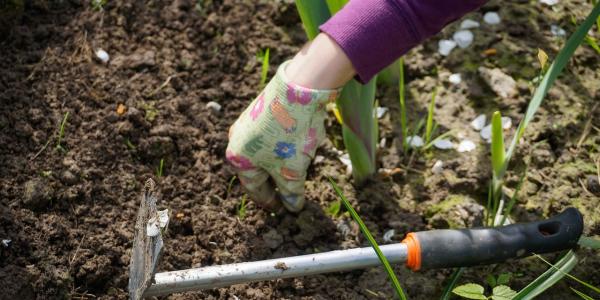Gardening: Digging in the Dirt to Harvest Stress Relief

Gardening is an activity in which people grow, cultivate, and take care of plants. Turns out, people take care of themselves in the garden too.
More American families than ever before are gardening, at least since the National Gardening Survey was first conducted in 1973. The 2018 edition again shows an increase in the number of 18- to 34-year-old gardeners. In just 3 years, this younger age group has grown from 23 percent to 29 percent of gardening households while the proportion of older gardeners has held steady.
As one of the so-called “older gardeners," I tend to think of gardening as a tradition. I was brought up in a gardening family. Putting in the garden was a springtime ritual that contributed significantly to putting food on the table for the rest of the year.
Growing food was my family’s reason, but according to the gardening survey, younger gardeners more often said they found an overall enjoyment factor and developed an attitude of happiness in gardening.
Enjoyment? Happiness? Are those the reasons why people nowadays are drawn to gardening? Discovery about the connection between horticulture and health has been the aim of a surprising amount of research. According to a recent analysis of 22 studies, gardeners were less likely to have mood disturbance, and depression and anxiety symptoms, and were more likely to have lower cortisol levels (measure of stress) than non-gardeners. Gardening was connected to improvements in well-being measures such as life quality and satisfaction.
The study authors proposed a few possible pathways for the gardening-health connection:
Antidote to the modern world
Cell phones, email, social media, deadlines, and the like make withdrawals all day long on something called directed attention, which is like a bank account of mental energy that allows us to manage the focus and direction of our thoughts. We each have only so much directed attention in the bank. When our balance dips to zero, we tend to become irritable, error-prone, distractible, and stressed out.
We can replenish ourselves by engaging in involuntary attention, the kind of effortless thought needed to do repetitive, soothing tasks so often found in the natural environment. The colors, sounds, and smells of the garden can be restorative. Exposure to the natural world seems to replenish our mental capabilities and allows us to recover from attention fatigue.
Activity that’s pleasurable and goal-oriented
Gardening gets you up and going, doing all sorts of movements that involve strength and stretching. Since gardens are constantly changing, the work isn’t tedious—perhaps with the exception of pulling weeds! The many tasks of the garden require the gardener to stick with it and come back often—a rewarding sense of accomplishment.
Meet your neighbor
Gardening as a way of establishing social ties and sense of community may be especially likely with community gardens. Social connections tend to happen with household gardens as well. In my own backyard garden, I often have enough produce to share. Neighbors are invited to pick berries, and office mates are offered vegetables from my abundant little patch.
Help us know what you want to know
We here at Health4U have just started to think about gardening as another way to foster mental wellness. As such, we’re thinking about offering more articles and courses about gardening. MSU, Michigan’s Land Grant University, has lots of resources on growing things. Perhaps the folks from the Student Organic Farm would be willing to teach us about how they control weeds and pests. Or maybe we could have an expert teach us about selecting good soil. Or, maybe we’ll just pull together an introduction to gardening class for those of you who are thinking about it but aren’t sure how to get started.
What sorts of gardening offerings would you like to see, dear reader? Let us know on our Facebook page and we’ll put all of the ideas into the hopper and see what we can dig up!
Soga, M., Gaston, K. J., & Yamaura, Y. (2017). Gardening is beneficial for health: A meta-analysis. Preventive Medicine Reports, 5, 92-99.





